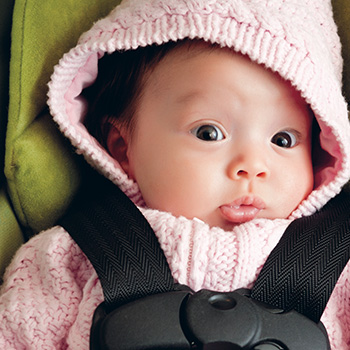Quitting time

Whether you’re already pregnant or still trying to conceive, quitting smoking is probably the most important decision you’ll ever make about your own and your baby’s health, says Penny Voigt.
There’s little doubt that smoking during pregnancy or when trying to conceive negatively affects the health and wellbeing of your unborn child; in fact, it’s the number one cause of adverse outcomes for babies. Miscarriage, premature birth, low birth weight, and infant death are just some of the side effects directly related to smoking during pregnancy.
Smoking during pregnancy is dangerous
Cigarette smoke contains more than 4,000 chemicals, including cyanide, lead, and at least 60 cancer-inducing compounds. When you smoke during pregnancy, these toxins enter your bloodstream and are passed on to your baby. Your blood is, after all, your baby’s only source of oxygen and nutrients.
While all of these chemicals are harmful to your baby, the worst of these are nicotine and carbon monoxide. These two toxins account for almost every smoking- related complication in pregnancy. Nicotine causes the blood vessels in your body to narrow, including those in the umbilical cord, while red blood cells that would normally carry oxygen begin picking up molecules of carbon monoxide instead, effectively starving your baby of its essential supply of oxygen.
Your smoking directly affects your baby
An oxygen de ciency can have devastating effects on your baby’s growth and development. Research shows that smoking during pregnancy doubles the chances of premature birth, low birth weight, and the risk of stillbirth. Here are some of the ways that smoking during pregnancy impacts on your baby.
Weight and size
It’s understood that a pack-a-day habit during pregnancy can reduce your baby’s birth weight by as much as 200 grams, while smoking two packs a day shaves off nearly 500 grams or more. It may seem like a good idea to deliver a smaller baby, but stunting your baby’s growth in the womb has long-term negative consequences.
Body and lungs
Babies who are undersized tend to have underdeveloped bodies. That means their lungs may not be ready to work on their own. Your baby could spend its rst few days or even weeks attached to a respirator, and may have continuing breathing problems or be especially vulnerable to asthma because of delayed lung development.
Heart
Research in the US found that babies whose mums smoked during pregnancy were at far higher risk of congenital heart defects, as much as 20 to 70% more than babies of non-smoking mums.
Brain function
Smoking during pregnancy has a lifelong impact on your baby’s brain, as children of pregnant smokers are more likely to have learning disorders, behavioural problems, and low IQs.
What can I do?
The good news is you can make a difference. Within 24 hours of quitting smoking, all carbon monoxide has left your body and your lungs begin functioning better. After a year of quitting smoking, your risk of a heart attack literally halves. Aside from the cost savings, quitting smoking means you and your baby will live longer, healthier lives.
The facts about smoking and fertility Ideally you should quit smoking before you conceive, as you’ll have a far better chance of getting pregnant. Here are some facts you should know about smoking when trying to get pregnant:
- Smokers take longer to conceive and are more likely to have fertility problems.
- Women who smoke are more likely to take longer than a year to conceive.
- If your partner is also a smoker, this signi cantly adds to the length of time it will take you to conceive.
- Smoking women reach menopause earlier than non-smoking women.
- The more you smoke, the more you impact your ability to get pregnant, and the longer it will take you to conceive.
- Heavy smoking can damage your ovaries and uterus, making it even harder to get pregnant.
Get some help
Quitting smoking isn’t easy. Finding a way to do it will depend on what works best for you. Here are some methods you could try to help you kick the habit:
Nicotine Replacement Therapy (NRT)
Gum, lozenges, or patches can help reduce your nicotine cravings and ease withdrawal symptoms. Prescription medication / Talk to your doctor or medical professional about treatment using medication that directly affects brain chemistry, helping control withdrawal symptoms.
Alternative therapies
Hypnosis or acupuncture can reduce cravings and help you relax.
Cut back
Gradually reduce the number of cigarettes you smoke each day until you’re no longer smoking at all.
Cold turkey
If you have strong willpower, try throwing away your last pack and never looking back. Stock up on gum, veggies, and lollies to keep your mouth busy when the urge strikes.
Quitline 0800 778 778, quitline.org.nz and smokefree.org.nz / Organisations like these provide a number of free resources, as well as ongoing support and advice when you need it.



